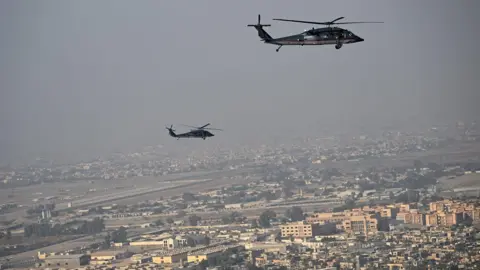In a significant development regarding international relations, the United States government has decided to initiate a partial evacuation of its embassy in Baghdad, Iraq, due to rising security threats. According to US government sources, this action is primarily aimed at non-essential staff and their dependents. The urgency of this evacuation reflects escalating concerns over the safety and security of American personnel in the region.
While the specific triggers for this evacuation have not been publicly disclosed, recent challenges in nuclear negotiations with Iran have been highlighted as a potential backdrop to the decision. Diplomatic talks regarding Iran’s nuclear ambitions have reportedly stalled, leading to increased tensions in the Middle East, particularly between the US and Iran. A spokesperson from the State Department reinforced the continual assessment of the personnel posture at all American embassies, indicating that the current situation warranted a reduction in the operational presence in Iraq.
The US government’s decision to withdraw personnel follows a series of negotiations aimed at reaching a deal with Tehran that would prevent it from developing nuclear weapons. President Donald Trump has expressed diminishing confidence in the prospects of Iran curbing its uranium enrichment activities, a significant concern for the US and its allies. Trump’s apprehensions underscore the ongoing friction between Western powers and Iran regarding its nuclear program and broader military intentions in the region.
The urgency of the evacuation is compounded by Trump’s recent tense phone call with Israeli Prime Minister Benjamin Netanyahu. Israel has consistently advocated for a more aggressive approach towards Iran, favoring military action over diplomacy. In a statement regarding the evacuation, Trump acknowledged the potential dangers that necessitated the move, emphasizing the unpredictable nature of the situation and the ongoing evaluations being made about US personnel safety.
Amidst these developments, Iranian officials have signaled a potential retaliatory stance, particularly if diplomatic talks collapse and military action is taken against them. This rhetoric highlights the precarious nature of US-Iran relations and the volatile environment in the region. Notably, US Defense Secretary Pete Hegseth also sanctioned the voluntary departure of American military families stationed across the Middle East, including in countries like Kuwait and Bahrain, indicating a broader recognition of potential threats in the area.
The Pentagon’s assessment, as reported during congressional testimony, suggests that there are clear indicators that Iran may be moving closer towards capacity resembling that of a nuclear weapon. In contrast, Iran maintains that its uranium enrichment program serves purely civilian energy purposes, categorically denying any intentions of developing nuclear weapons. The contrasting narratives emphasize the complexity of the geopolitical situation, where trust is severely eroded and skepticism runs high on both sides.
Recent warnings from the UK’s Maritime Trade Operations, a component of the Royal Navy, state that rising military tensions in the Middle East could adversely impact shipping routes. This adds another layer of urgency as global markets react; reports indicated that crude oil prices rose by over 4% immediately following the announcement of the US embassy evacuation, driven by concerns over potential instability affecting oil supply.
The US military’s presence in Iraq is currently estimated at about 2,500 troops, a figure that underscores the longstanding American commitment to maintaining a foothold in the region, particularly in the face of threats from Iranian influence and extremist groups. As this situation evolves, it will be critical to observe how both diplomatic maneuvers and military posturing play out, especially as stakeholders in the region recalibrate their strategies in response to heightened tensions.
This evacuation decision raises significant questions about the future of diplomatic negotiations with Iran and the stability of US operations in Iraq, amidst a landscape characterized by insecurity and the looming threat of military escalation.



